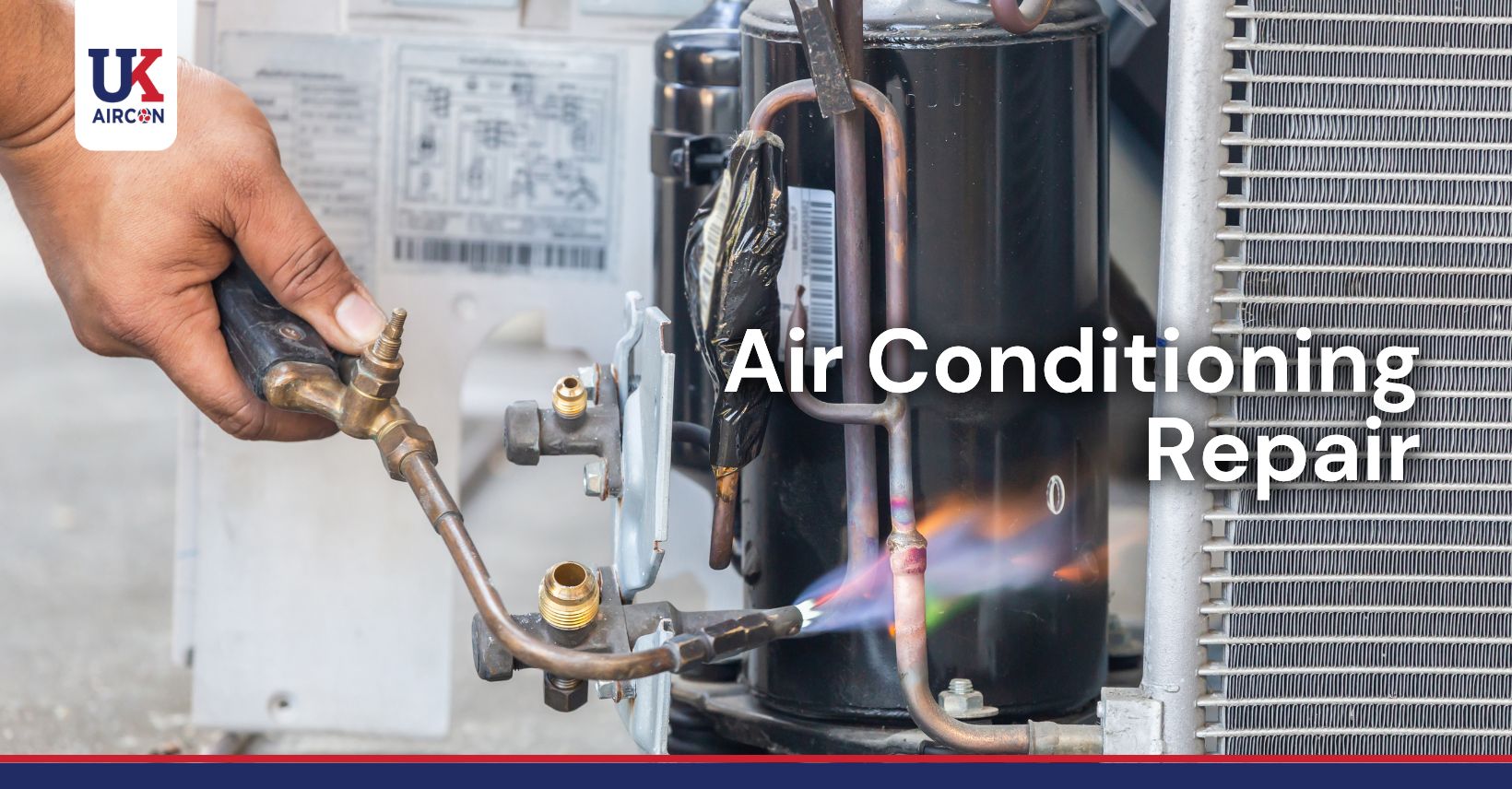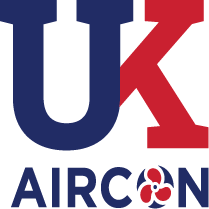With the scorching heat of summer upon us, a well-functioning air conditioning system is important for staying cool and comfortable. Even the most reliable AC units may encounter issues that require repair.
In this comprehensive guide, we will explore what air conditioning repair entails, when it is needed, how to find a trustworthy repair company, the steps involved in the repair process, the cost of repairs, and tips for preventing future issues.
Master the art of air conditioning repair for optimal cooling and cost efficiency by staying tuned.
What Is Air Conditioning Repair?

Air conditioning repair involves diagnosing and fixing any issues within the AC system to ensure it operates efficiently and effectively.
Proficient air conditioning repair services contain various tasks, from simple maintenance to complex troubleshooting. Common maintenance tasks such as cleaning or replacing filters, checking refrigerant levels, inspecting electrical components, and lubricating moving parts are important in ensuring optimal performance.
Promptly addressing faulty parts allows technicians to prevent minor issues from becoming major breakdowns, extending the air conditioning unit’s lifespan. Regular maintenance improves energy efficiency, reduces utility bills, and enhances comfort. Understanding these benefits helps underscore the importance of recognizing when air conditioning repair is necessary, which is our next topic of discussion.
When Is Air Conditioning Repair Needed?
Air conditioning repair becomes necessary when malfunctioning, during routine checks, or following emergency breakdowns. Understanding these triggers helps identify early warning signs. Next, we will explore the Common Signs that your AC Needs Repair, providing important insights into promptly recognizing potential issues.
What Are the Common Signs That Your AC Needs Repair?
Poor cooling performance, unusual noises, blocked airflow, unpleasant odours, and the presence of bacteria are common signs that your AC needs repair.
Reduced cooling efficiency is often a clear indication that something is amiss with your air conditioning system. This could be due to a refrigerant leak, a clogged air filter, or a malfunctioning compressor.
The unusual noises emanating from your AC, like grinding, squealing, or banging sounds, may suggest worn-out components or loose parts that need immediate attention.
Blocked airflow can result from obstructions in the ductwork or a dirty evaporator coil, hindering cool air circulation throughout your home.
Unpleasant odours, potentially caused by mould or mildew growth within the system, detract from your comfort and pose health risks.
Bacteria from a contaminated AC unit can worsen respiratory conditions, making timely intervention essential to maintaining health and unit efficiency. Ensuring your air conditioner is serviced regularly prevents health issues and extends the system’s life. Selecting a dependable service provider is important to guarantee efficient and safe repairs, leading us to consider how to find a reliable air conditioning repair company.
How To Find A Reliable Air Conditioning Repair Company?
To find a reliable air conditioning repair company, conduct thorough research, seek specialists, and evaluate their service quality and inspection protocols. These steps lay the groundwork for understanding what to look for in an AC repair company, ensuring you select a service provider that meets your needs and standards. This preparation is essential as we transition into the key criteria that define a trustworthy AC repair company.
What To Look For In An AC Repair Company?

When choosing an air con repair company, look for quality service, availability of parts, warranty options, and the qualifications of their air conditioning engineers.
Quality service is paramount in air conditioner repairs. It ensures the job is done right the first time, preventing frequent breakdowns.
Ensuring the availability of high-quality replacement parts is important for prompt repairs and long-term system efficiency.
Comprehensive warranty options provide peace of mind, assuring customers of ongoing support post-repair.
The expertise and qualifications of air conditioning engineers directly impact the quality and longevity of the repair work.
Engaging skilled professionals guarantees a reliable, efficient, and durable fix.
What Are The Red Flags To Watch Out For In An AC Repair Company?
Red flags to look for in an air conditioning repair company include poor diagnosis skills, a lack of emergency services, and the use of non-serviceable parts.
Suppose an air conditioning repair company lacks the expertise to diagnose issues accurately. In that case, this can lead to incorrect repairs that fail to address the problem, costing you more in the long run.
If they are unavailable for emergency repairs when your system breaks down unexpectedly, you can be stranded in extreme temperatures, risking discomfort and health hazards.
Utilizing non-serviceable parts in your air conditioning system can reduce its efficiency and durability and heighten safety risks due to the increased likelihood of malfunctions or breakdowns. This concern underscores the importance of following the correct procedures and using the right components in the steps involved in air conditioning repair.
What Are The Steps Involved In Air Conditioning Repair?
- The steps involved in air conditioning repair typically begin with a thorough inspection and troubleshooting of the system to identify the problem accurately.
Troubleshooting and Diagnosing the Problem
Troubleshooting and diagnosing the problem involves a detailed inspection of the system to identify faulty parts and potential issues.
One essential method used in this process is conducting various tests on the system components to pinpoint the source of the malfunction. By utilising specialised tools and equipment, professionals can accurately diagnose the problem, ensuring the repair work is targeted and effective. Another important aspect is examining the system’s performance history and behaviour patterns to understand the underlying issue better.
Repairing or Replacing Parts

Repairing or replacing parts is the next step, where the technician arrives on-site, often with a fully-stocked van, to address the issues identified during the inspection.
Upon arrival, the technician carefully assesses the faulty components, selecting the appropriate tools from the array available in the van. This preparedness ensures efficient handling of any situation, allowing for quick and effective solutions to be implemented.
By having a comprehensive inventory of spare parts, the technician can swiftly replace damaged components, minimising potential downtime for the client’s AC unit. This on-site approach not only saves time but also offers convenience to the customer by completing the repairs without needing multiple visits or long wait times.
Testing and Recharging the System
After repairs, testing and recharging the system with refrigerant ensure optimal performance and cooling efficiency.
Once the repairs have been completed, the next important step involves thoroughly testing the system to guarantee that all components function as they should. This testing phase is vital to pinpoint any potential issues or lingering malfunctions that may have been missed during the repair process. You can ensure that the air conditioning unit operates at its best by carefully checking each aspect of the system, such as the compressor, evaporator, and condenser.
After testing, recharging the air conditioning system with the appropriate refrigerant is vital to sustain its cooling efficacy. This recharge ensures the system operates efficiently and helps avoid undue stress on its components, enhancing overall performance. Understanding these maintenance costs is integral to evaluating the financial aspects, leading us to explore the costs involved in air conditioning repair.
How Much Does Air Conditioning Repair Cost?
The air conditioning repair cost can vary widely depending on the extent of the repairs needed, the cost of replacement parts, and the service charges for inspection and labour.
Factors That Affect the Cost of AC Repair
Several factors affect the cost of air conditioning repair, including the type and availability of parts, warranty coverage, and the system’s complexity.
Regarding the type and availability of parts, the cost can vary significantly based on the brand and model of your air conditioning unit. Certain parts may be more expensive or harder to find, leading to increased repair costs.
Warranty coverage is another important factor. If your air conditioning system is still under warranty, you may only have to pay for labour or certain parts, reducing out-of-pocket expenses.
The complexity and age of the system can also impact the repair costs. Older systems or those with intricate designs may require more time and effort to fix, driving up the overall bill.
How To Save Money on Air Conditioning Repair?

To save money on air conditioning repair, schedule regular maintenance to keep the system in good performance and address minor issues before they become major problems.
Enrolling in a maintenance service plan can be smart, as it often includes routine check-ups and can catch potential issues early on. These proactive measures not only prolong the lifespan of your unit but also prevent costly repairs down the line.
Regular self-checks, such as ensuring clean air filters and removing debris, are cost-effective measures to maintain your air conditioning system’s efficiency and prevent breakdowns. Simple maintenance tasks like cleaning vents and inspecting for leaks contribute significantly to system health. These preventive measures segue into our next discussion on proactively avoiding the need for air conditioning repair, ensuring your system remains efficient and reliable.
How To Prevent the Need for Air Conditioning Repair?
Preventing air conditioning repair involves regular maintenance, proper system usage, and promptly addressing emerging issues.
Regular Maintenance
Regular maintenance is important for keeping your air conditioning system in top performance and preventing unexpected breakdowns.
Tasks such as cleaning filters regularly ensure the system operates efficiently and maintains indoor air quality. Checking refrigerant levels helps prevent system malfunctions and reduces energy consumption. Inspecting for wear and tear on components like belts and bearings can catch small issues before they become costly. Scheduled maintenance services also extend the lifespan of your air conditioner, saving you money on potential repairs or replacements in the long run.
Proper Usage and Care
Proper usage and care of your air conditioning system can significantly enhance its performance and lifespan.
One essential tip is to set appropriate temperatures on your air conditioning unit. Setting the thermostat at an optimal level helps maintain a comfortable indoor environment and prevents the system from overworking.
Avoid overuse by switching off the air conditioning when unnecessary, allowing the system to rest and reducing energy consumption.
Proper ventilation is also important. Clean air vents and filters allow unrestricted airflow, improving the system’s efficiency and durability.
Promptly Addressing Any Issues
Quickly addressing any issues with your air conditioning system is important to avoid more severe problems and costly repairs.
Early detection and repair of issues within your AC system enhance efficiency and extend its lifespan. Regular maintenance and inspections play an important role in identifying problems early, allowing for prompt resolution of minor issues before they develop into major faults needing comprehensive repairs. This proactive approach is essential for maintaining your unit’s long-term efficiency, which we will explore in the following section, Mastering Air Conditioning Repair for Long-Term Efficiency.
Conclusion: Mastering Air Conditioning Repair for Long-Term Efficiency
Mastering air conditioning repair is essential for ensuring your cooling system’s long-term efficiency and optimal performance.
Regular maintenance prevents breakdowns and costly repairs, ensuring your air conditioning unit operates smoothly throughout its lifespan. Understanding how your system works and promptly addressing any issues can extend its longevity and maintain a comfortable indoor environment year-round. Proper usage, such as regularly changing filters and keeping the outdoor unit clear of debris, maximises energy efficiency and reduces utility bills.

